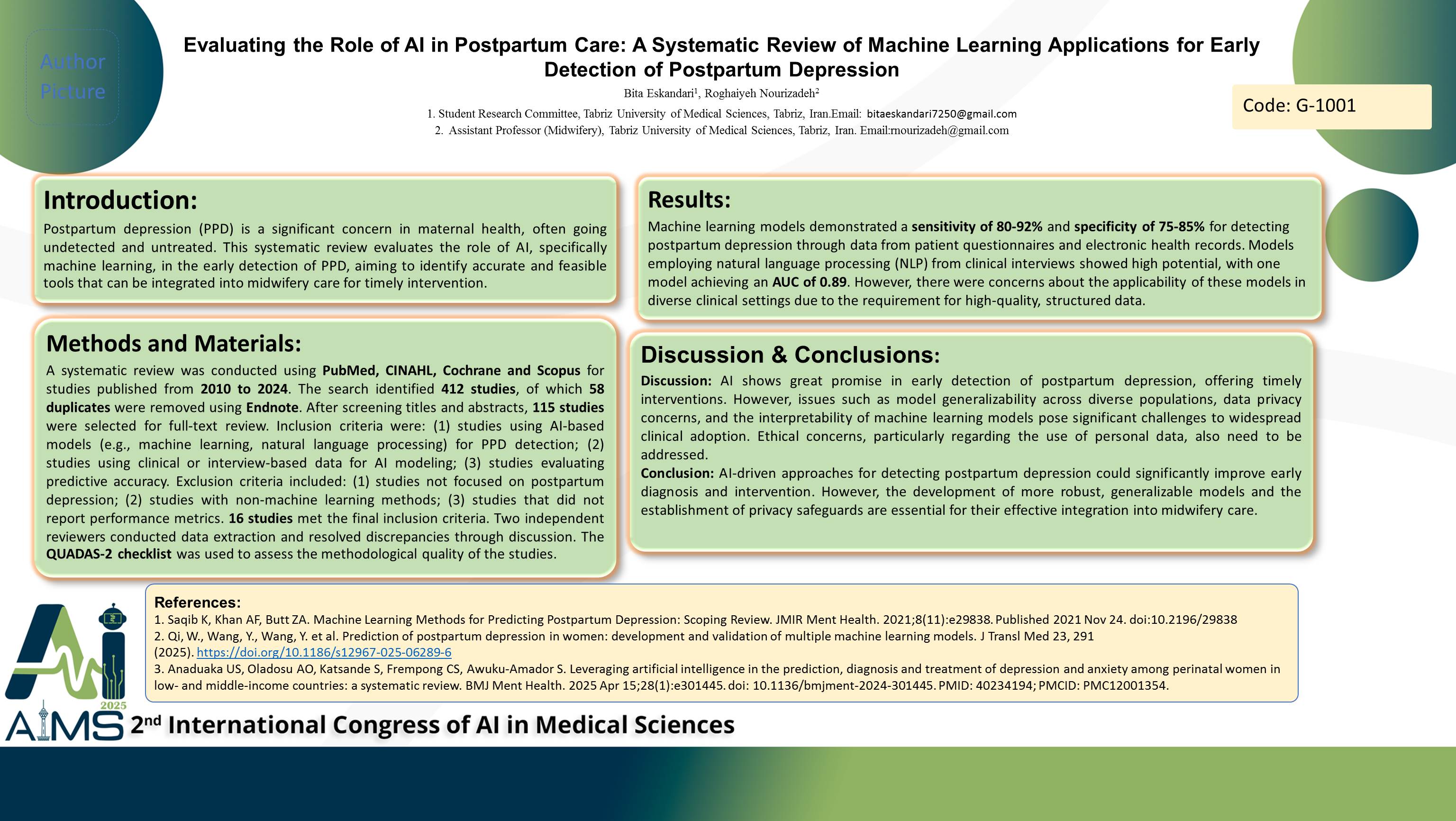Evaluating the Role of AI in Postpartum Care: A Systematic Review of Machine Learning Applications for Early Detection of Postpartum Depression
Code: G-1874
Authors: Bita Eskandari * ℗, Roghaiyeh Nourizadeh
Schedule: Not Scheduled!
Tag: Clinical Decision Support System
Download: Download Poster
Abstract:
Abstract
Background: Postpartum depression (PPD) is a significant concern in maternal health, often going undetected and untreated. This systematic review evaluates the role of AI, specifically machine learning, in the early detection of PPD, aiming to identify accurate and feasible tools that can be integrated into midwifery care for timely intervention. Method: A systematic review was conducted using PubMed, CINAHL, Cochrane and Scopus for studies published from 2010 to 2024. The search identified 412 studies, of which 58 duplicates were removed using Endnote. After screening titles and abstracts, 115 studies were selected for full-text review. Inclusion criteria were: (1) studies using AI-based models (e.g., machine learning, natural language processing) for PPD detection; (2) studies using clinical or interview-based data for AI modeling; (3) studies evaluating predictive accuracy. Exclusion criteria included: (1) studies not focused on postpartum depression; (2) studies with non-machine learning methods; (3) studies that did not report performance metrics. 16 studies met the final inclusion criteria. Two independent reviewers conducted data extraction and resolved discrepancies through discussion. The QUADAS-2 checklist was used to assess the methodological quality of the studies. Results: Machine learning models demonstrated a sensitivity of 80-92% and specificity of 75-85% for detecting postpartum depression through data from patient questionnaires and electronic health records. Models employing natural language processing (NLP) from clinical interviews showed high potential, with one model achieving an AUC of 0.89. However, there were concerns about the applicability of these models in diverse clinical settings due to the requirement for high-quality, structured data. Discussion: AI shows great promise in early detection of postpartum depression, offering timely interventions. However, issues such as model generalizability across diverse populations, data privacy concerns, and the interpretability of machine learning models pose significant challenges to widespread clinical adoption. Ethical concerns, particularly regarding the use of personal data, also need to be addressed. Conclusion: AI-driven approaches for detecting postpartum depression could significantly improve early diagnosis and intervention. However, the development of more robust, generalizable models and the establishment of privacy safeguards are essential for their effective integration into midwifery care.
Keywords
Postpartum Care, Postpartum Depression, Machine Learning
